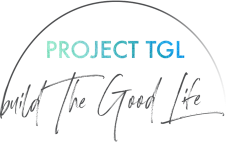Listen to this blog post (or download the audio file):
Did you know that the fuel your brain runs on is glucose? As far as organs go, your brain is hungry. It makes up about 2% of your body weight, but consumes 20% of your calories. Thinking is hard work!
When we have a lot to get done, it’s tempting to think that we can get on top of things by doing multiple things at once: write emails while watching TV, or having an instant messaging conversation while getting work done. But multitasking comes at a high cost.
In my “Tweak your week (and think like a productivity superstar)” workshop we look (among other things) at the many ways that multitasking creates problems for you, and what to do instead. Here’s a sneak peek:
Problem 1: You burn through your brain fuel
When people think they’re multitasking, they’re actually just switching from one task to another very rapidly. And every time they do, there’s a cognitive cost.
–Earl Miller, MIT neuroscientist
Your brain has a limited supply of glucose each day, but this supply is not used at a consistent rate. Some activities use up more brain fuel that others. And what do you think burns through your glucose like nobody’s business? Yep, multitasking.
Every time you switch between tasks (which is what really happens when we think we’re paying attention to two things at once), your brain burns through more of its limited fuel supply, meaning you will become tired and less-than-functional earlier in the day.
Problem 2: You get less done
Multitasking feels more efficient, but it turns out that’s a cognitive illusion. Studies have shown that when students text while doing homework, they spend significantly longer than they would have done if they texted and did their homework at separate times.
David E. Meyer – director of the Brain, Cognition and Action Laboratory at the University of Michigan – says that being efficient through multitasking is a myth:
The toll in terms of slowdown is extremely large – amazingly so.
–David E. Meyer, University of Michigan
When he researches multitasking, he finds people often take twice as long to get things done when they multitask.
Problem 3: You make more mistakes
People who try to do two tasks in parallel don’t just take longer to complete the tasks: they also make about twice as many errors. Nuff said.
Summing up
I’ll let Clifford Nass do the talking here. In 2009, he conducted a study to find out how people who frequently multitask differ from others. The hypothesis was that multitaskers would have special skills that monotaskers did not. Here’s what he found instead:
It turns out multitaskers are terrible at every aspect of multitasking. They’re terrible at ignoring irrelevant information; they’re terrible at keeping information in their head nicely and neatly organized; and they’re terrible at switching from one task to another.
–Clifford Nass, Stanford
What to do instead
Next time you need to do some work, aim for a minimum of 20 minutes of uninterrupted, focused engagement. (Note: If you’re a serial multitasker, you may want to start with a smaller block of time, because you’ll find it hard to resist the itch to check social media, your phone, etc. Starting small and succeeding is better than starting big and failing.)
Before you start focusing on your task, eliminate external distractions: turn your phone on silent and put it outside your line of sight; close your email inbox; close the door to your office.
Then, eliminate internal distractions: take a few moments to write down everything that’s on your mind, and promise yourself that you’ll return to that list once you’re done monotasking. This helps prevent intrusive thoughts from popping up in your mind while you’re working.
Now, sit down, take a breath, and approach your work with nothing else to distract you. That clear-headed feeling you’re having? That’s what focus feels like.




